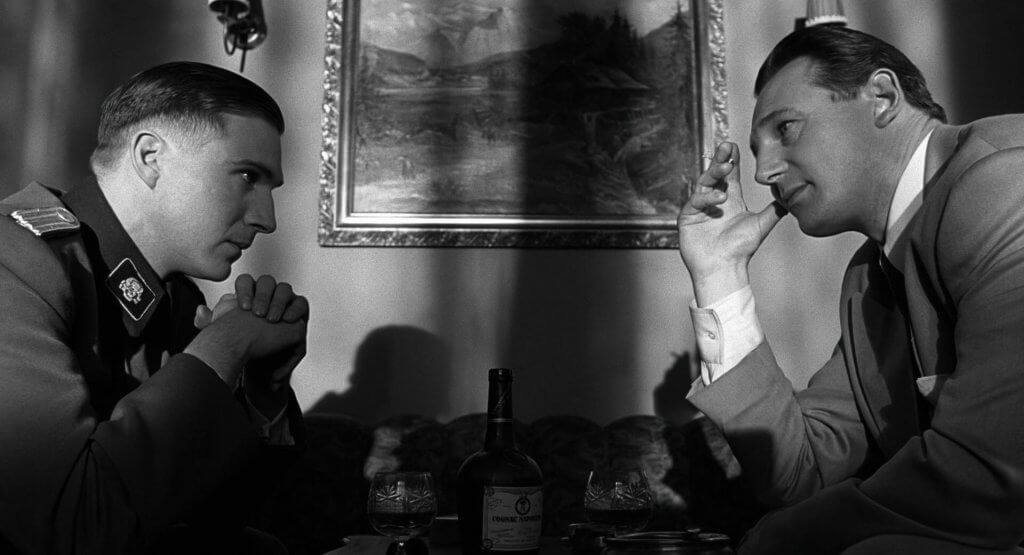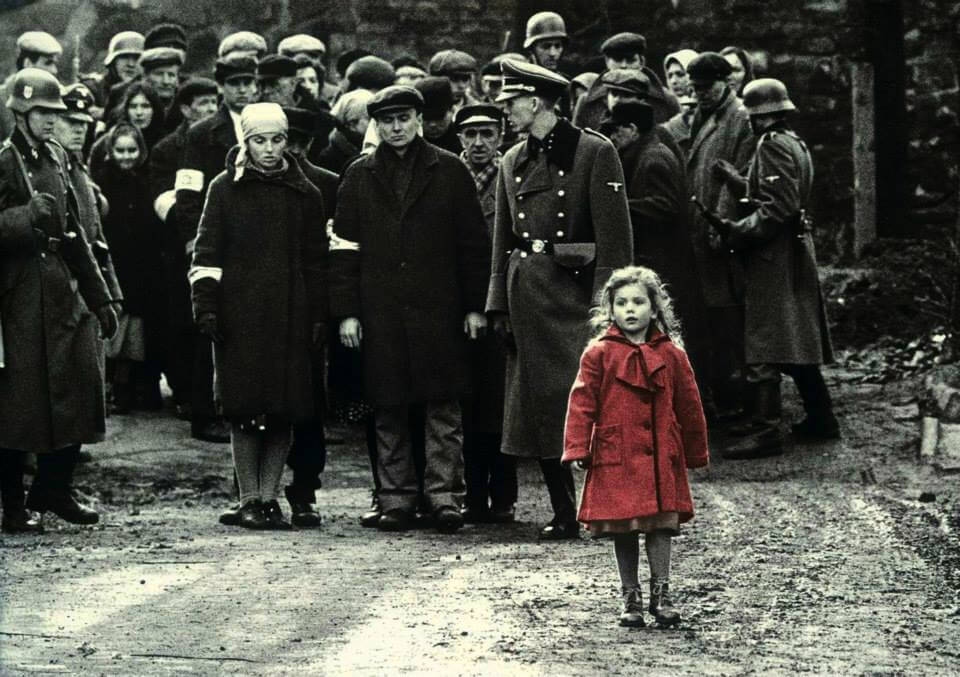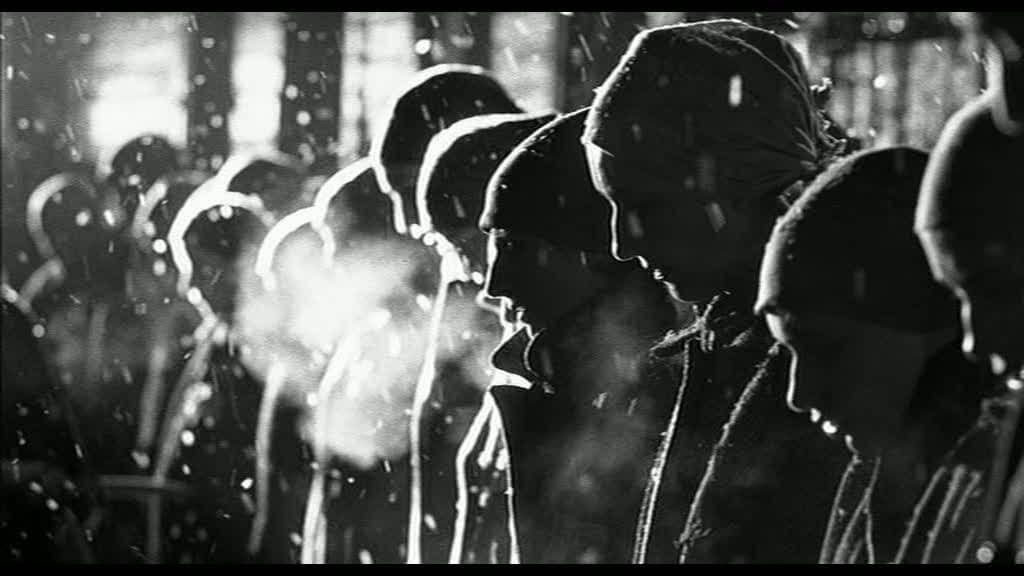News and Articles › Gripping Film Moments
[Andrew Wyeth] our greatest living kitsch-meister.
— Robert Storr, curator
Top list
View the entire list
In a way, Spielberg’s film is a melodrama, a kitschy melodrama. One is affected by this story of a German swindler, nothing more than that.
— Claude Lanzmann (film producer)
To begin I want to continue the track from my previous review of The Epilogue of Children Of Men (2006) about the lead role’s psychological growth and the significance this change has to the story.
Development of character is certainly a must-have for any kind of storytelling but at executing such an important structural ingredient – Schindler’s List (1993) is by far the most gripping.
Ok – I tend to exaggerate the importance of every scene in my film analysis but nevertheless – Spielberg’s film is superior to all other Hollywood productions that I have seen – because of this scene:
A pure kitsch-attack – have you ever seen something that pathetic? My eyes get wet from just thinking about this scene.
“I could have gotten one more person…”
It surely would not have been such a gripping moment if the main character had not underwent a transformation in the first place. Imagine Oscar Schindler walking around – trembling and tumbling – blaming himself for not having done enough in the opening minutes of the film.
That would hardly work – would it?
The film producer Claude Lanzmann calls Schindler a “German swindler” – but regardless of history – Schindler’s List belongs to the Superhero genre of films. At a first glance this might come off as erroneous:
Here is a man cooperating with the National Sosialists and hiring prison labor force to make a high profit. Oscar Schindler reveals little empathy for other people… seemingly.
But this is also a man of confidence who acts on his conscience even when it is against the social rules (definitely against common sense).

Oscar Schindler (right) bargaining for jews with Amon Goeth – commander of the Kraków-Płaszów concetration camp. The duality between Schindler the war profiteer and Schindler the lifesaver keeps the audience on their toes.
Whether Schindler has “good” or “bad” intentions it becomes clear that while hostility towards jews escalate – his love for them increases. The indestructible businessman hides or belittles his conscientious actions and the audience love him for it.
He is no talk and all action!
In the end our hero winds up saving more than a thousand jews – single-handedly. Oscar Schindler is super-human.
One would think that being that great ought to be enough.
Wrong.
Where there is a tragic form the extraordinary guy is prohibited from coming off on top and unhurt. Innate in our nature there is a demand to drag the hero down to our level – the audience wants to see suffering and weakness.
Quite cynical is it not?
Well – it boils down to identification and all the best Superhero movies share this attribute. A Man For All Seasons (1966) – The Hunt (2012) – A Beautiful Mind (2001), When The Raven Flies (1984) – even Yo Jimbo (1961). All the lead characters from these movies are admired for their elevated nature but their breakdowns – when they redemptively become fragile human beings for a moment’s time – gives them a place in the viewer’s heart forever.
Schindler’s List is rich on passionate moments that I keep coming back to – like the girl in the red coat. This is literally the lead role’s conscience walking around – haunting him later on under a mass burning of departed jews – where the girl in red (his conscience) is dumped onto a pile of corpses.
As with many Hollywood movies about the Holocaust – “Schindler’s List” carries the nickname “Holo-kitsch” because of its sentimental and melodramatic showcasing of the second world war.
The German author Imre Kertész called the film “kitsch as fat as a dinosaur” and the film critic Richard Corliss condemned it for eliciting “easy tears.” A SALON reporter called it “kitsch of the highest order” and the list of similar criticism goes on and on.
One reporter even said that this “fakery” is the case with all of Spielberg’s movies and that he constantly triggers manipulated emotions in the audience. But I have never seen a more tragic and sincere movie from this director than Schindler’s List. Manipulating emotions is like magic – you are not supposed to see through it! That is exactly what Spielberg managed to do with this film. One of the reasons – of course – is that few people joke about the holocaust. Oh am I happy for that!
Published on Saturday, October 29th, 2016






